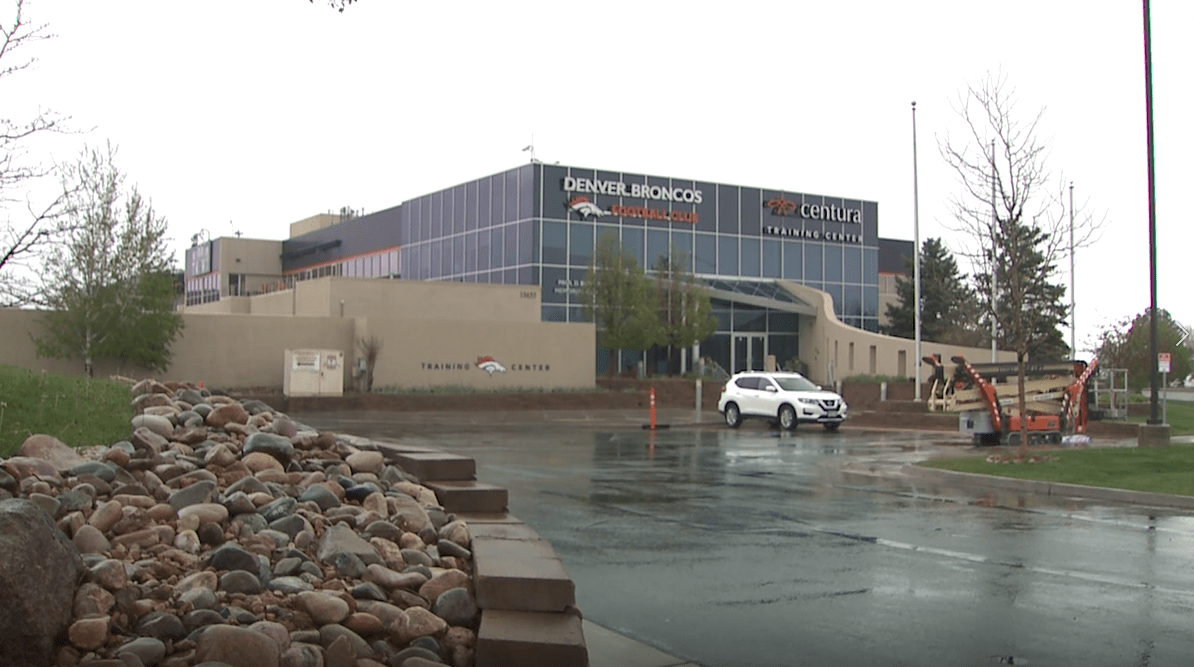EAST RUTHERFORD, N.J. — Things went bad for the Denver Broncos on the first play of the game in Super Bowl XLVIII Sunday and only got worse from there. Center Manny Ramirez snapped the ball and it went sailing over Peyton Manning’s head as the quarterback approached the line to shout commands.
The play resulted in a safety and a 2-0 lead for Seattle. The Broncos seemed out-or-sorts and they never recovered against a swarming, disruptive Seahawks defense and a focused offense led by quarterback Russell Wilson.
The Broncos lost to the Seattle Seahawks 43-8.
The Seattle Seahawks’ defense suffocated the Denver Broncos in the first half, taking advantage of a safety and two interceptions thrown by Denver’s Peyton Manning. It was not Manning’s night to win his second Super Bowl ring.
“To finish this way is disappointing,” Manning said while speaking to the media after the game. “Not an easy pill to swallow, but we have to.”
Congratulations to the @Seahawks on winning #SB48. @Broncos fans – we had a great season!
— FOX31 Denver KDVR (@KDVR) February 3, 2014
It was a disastrous first half for the most prolific offense in NFL history. The disaster continued to build in the second half.
The game was billed as the Seahawks number one defense going against the Broncos number one offense. Seattle dominated Denver, who collapsed in a fashion few expected would happen in Super Bowl XLVIII.
Seattle’s defense was so strong that Denver managed only 27 yards rushing, compared with 135 for Seattle. Manning went 34 for 49 to gain 279 yards in the air, but most passes were for short yardage with his receivers quickly taken down. His counterpart, Russell Wilson of Seattle, went 18 for 26 to gain 206 yards and score two touchdowns.
Fittingly, a Seattle defensive player, Malcolm Smith, was named the game’s most valuable player.
Seattle won its first Super Bowl in franchise history. Manning, who’d come back from a serious neck injury to set offensive records this season, was thwarted in his quest for a second Super Bowl ring.
Seattle took advantage of Denver miscues, including a fumble and two interceptions thrown by quarterback Peyton Manning, the NFL’s most valuable player for the season.
“We just never found a rhythm offensively,” says Broncos wide receiver Eric Decker.
Just before the third quarter ended, Denver got onto the scoreboard when Manning threw a 14-yard pass to Demaryius Thomas. Denver went for a two-point PAT to make the score 36-8. That meant the Broncos would not be the first team to be shut out in a Super Bowl.
Denver started the game in the hole and just never recovered.
Seattle kicked two field goals and Marshawn Lynch scored on a 1-yard run for a touchdown. The Seahawks’ Malcolm Smith intercepted Manning’s second interception and returned it for another touchdown.
Seattle led the game at halftime 22-0. It was the third largest halftime lead in Super Bowl history.
The second half started out bad for Denver, with Seattle’s Percy Harvin running the opening kickoff back for a touchdown.
Jermaine Kearse caught a 23-yeard pass from Russell Wilson with 2:58 left in the third quarter for another touchdown, making the score 36-0 after the extra point.
Denver, led by the 37-year-old Manning, has the NFL’s best offense, statistically, but never got moving Sunday. Seattle has the best defense.
Manning did set a Super Bowl record for pass completions with 34. He threw one touchdown pass and two interceptions.
Anticipated cold weather was not a factor in the game being played in East Rutherford, New Jersey, the first cold-winter city to host the big game in an outdoor stadium.
The stadium is also home of the New York Giants, the team quarterbacked by Peyton Manning’s brother, Eli Manning. Eli has won two Super Bowls compared to his big brother’s one Super Bowl, with his former team, the Indianapolis Colts.
For a few days early last week, there was talk that the NFL might have to change its Super Bowl kickoff time by hours or even a day. But the temperatures were in the mid-40s when the game started.
The record for a cold weather Super Bowl is 39 degrees in 1972 in New Orleans.
CNN contributed to this report
